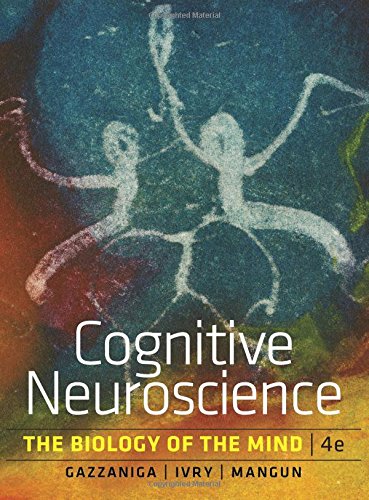Cognitive Neuroscience: The Biology of the Mind pdf free
Par montano brenda le lundi, juin 27 2016, 08:07 - Lien permanent
Cognitive Neuroscience: The Biology of the Mind by G. R. Mangun, Michael S. Gazzaniga, Richard B. Ivry


Download eBook
Cognitive Neuroscience: The Biology of the Mind G. R. Mangun, Michael S. Gazzaniga, Richard B. Ivry ebook
Page: 185
Format: pdf
ISBN: 0393972194, 9780393972191
Publisher: W. W. Norton & Company
These results had a deep impact on cognitive neuroscience, leading the the world's leading experts to predict that 'mirror neurons would do for psychology what DNA did for biology'. Cognitive Neuroscience: The Biology of the Mind. As the field continues to grow, we will better understand the social, biological, and cognitive factors that determine how we relate to others. Human: The Science Behind What Makes Us Unique. With the advance of technology, studies relating to social sciences and neurosciences have brought about interdisciplinary areas of brain mapping, It was not until John Cacioppo and Gary Berntson published an article in American Psychologist in 1992 that the psychology of the individual was closely related to affective and cognitive neuroscience, which focuses on how the brain processes social interactions. Psychological Science: Mind, Brain, and Behavior. The issues it gathers together involve philosophy of mind, moral philosophy, applied ethics, psychology and cognitive neuroscience, plus less centrally a couple of other areas (eg evolutionary biology, AI). Apparently so, and Provan indicates his stance on the matter by suggesting one of the central tenents of, yes, the quest of modern neuroscience—that cognition does have a biological basis—is akin to a fantasy. Neuro researchers are world leaders in cellular and molecular neuroscience, brain imaging, cognitive neuroscience and the study and treatment of epilepsy, multiple sclerosis and neuromuscular disorders. Department of Theoretical Philosophy, Faculty of Philosophy, University of Bucharest, organizes a conference on “The mind-brain relationship in cognitive neuroscience” on 27-28th April 2012. Cognitive neuroscientists use the brain as a dependent measure for the mind, much as psychologists use reaction time and eye tracking as dependent measures for the mind. We have an inkling of the cognitive processes that beget consciousness, which is both a product and central feature of the brain; but philosophers and neuroscientists alike still have trouble defining, much less locating, the phenomenon and explaining the .